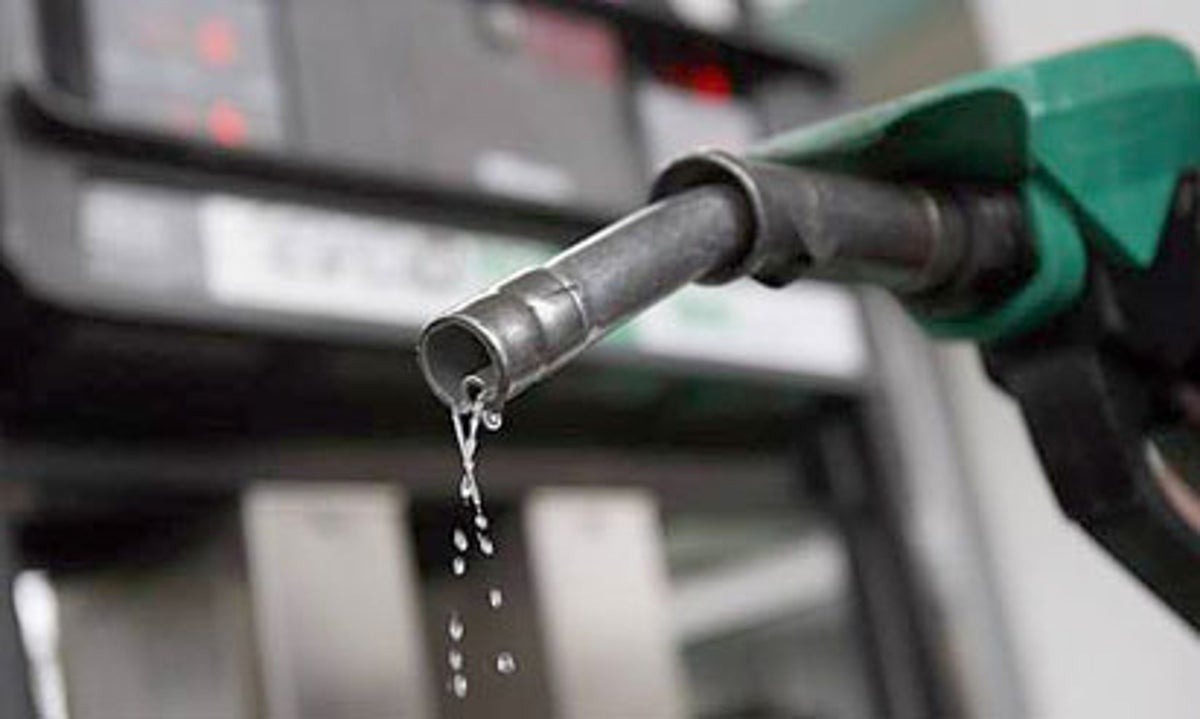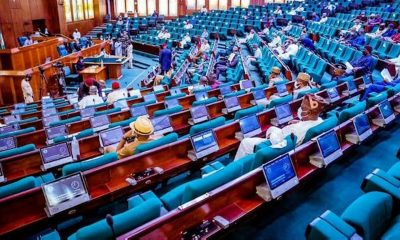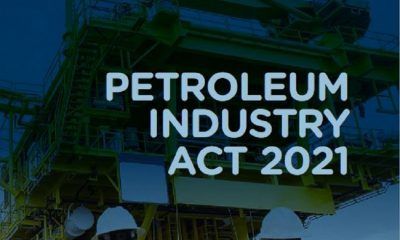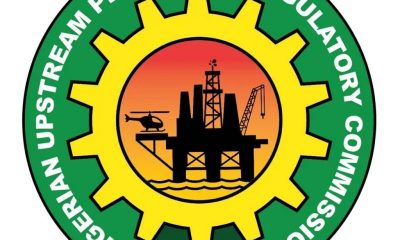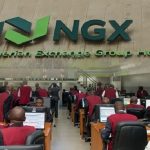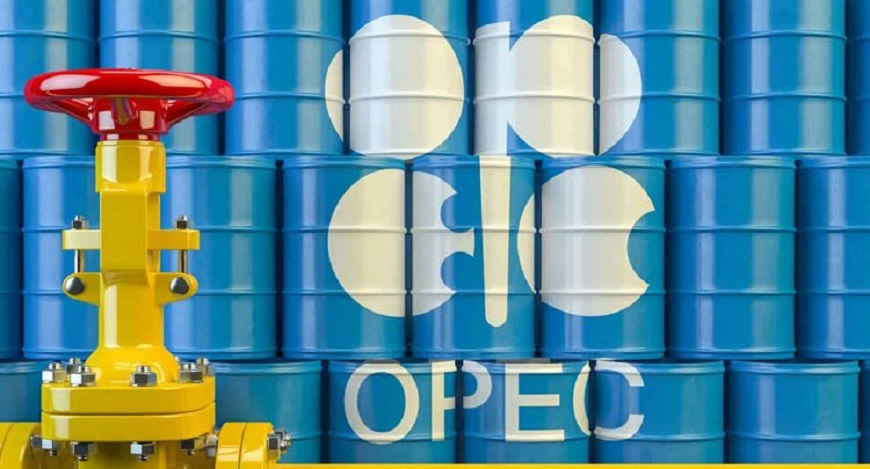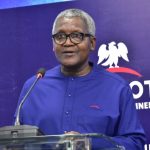General
PIA and Gestation of Acts

By Jerome-Mario Chijioke Utomi
Many Nigerians with critical interest had hitherto believed that the advent of Nigeria’s Petroleum Industry Act (PIA) 2021, which was signed into law in the year mentioned above, and arguably the most audacious attempt to overhaul the petroleum sector in Nigeria, would solve the real and imagined challenges in the nation’s petroleum sector, and turn the Niger Delta region, particularly host communities, to a zone of peace in their relationship with crude oil prospecting and exploration companies.
However, facts have since emerged that instead of providing the legal, governance, regulatory and fiscal framework for the Nigerian petroleum industry and the host communities, the Petroleum Industry Act has, contrary to expectations, become a first line of conflict between crude oil prospecting, exploration companies and their host communities.
Like other Acts that guided crude oil production in the past, PIA has similarly become a toothless bulldog that neither bites nor barks. In fact, analysts and industry watchers have come to a sudden realization that nothing has changed.
Among many examples, the recent 14 days ultimatum/threat by an oil-rich community of Tsekelewu (Polobubo) in Warri North Local Government Area of Delta State to shut down ongoing exploration activities of Conoil Producing Limited if the company failed to reach a definite agreement with the community on the implementation of Chapter 3 of the PIA for the Tsekelewu bloc of communities, supports this assertion.
Entitled ‘Fourteen (14) Days Ultimatum to Implement Chapter 3 of 2021 Petroleum Industry Act (PIA) in Tsekelewu (Polobubo) Host Community and Bloc of Communities by Conoil Producing Limited at OML 103’, the petition/ultimatum, dated December 30, 2022, signed by the President-General of the Tsekelewu (Polobubo) Development Association, Dr Bright Abulu, and the spokesman of the association, Mr Christmas Ukagha, and addressed to the Managing Director/Chief Executive Officer of Conoil Producing Limited, among other things, lamented that they adopted the option due to seemingly snobbish attitude of the management of Conoil as the company’s management had refused to honour letters asking for a meeting with the TCDA on the issue of the PIA implementation.
Essentially, while the people of Tsekelewu (Polobubo) host community continue to wait for what becomes the outcome of their ultimatum, there is indeed, greater evidence that points to the fact that the underlying premise behind PIA enactment has been defeated.
There is equally a reason for concern that what is currently happening between oil companies and their host communities may no longer be the first half of a reoccurring circle but, rather, the beginning of something negatively new and different.
A tour by boat of creeks and coastal communities of Warri South West and Warri North Local Government Areas of Delta State will amply reveal that the much-anticipated end in sight of gas flaring is actually not in sight.
In the same manner, a journey by road from Warri via Eku-Abraka to Agbor and another road trip from Warri through Ughelle down to Ogwuashi Ukwu in Anoicha Local Government of the state shows an environment where people cannot properly breathe as it is littered by gas flaring points.
To a large extent, the above confirms as true the recently published report, which, among other concerns, noted that Nigeria has about 139 gas flare locations spread across the Niger Delta both in onshore and offshore oil fields where gas which constitutes about 11 per cent of the total gas produced are flared.
Apart from the health implication of flared gases on humanity, their adverse impact on the nation’s economy is equally weighty.
For instance, a parallel report published a while ago underlined that about 888 million standard cubic feet of gas were flared daily in 2017. The flared gas, it added, was sufficient to light up Africa, or sub-Saharan Africa, generate 2.5 gigawatts (GW) of power or produce 50 million barrels of oil equivalent (boe) or produce 600,000 metric tonnes of liquefied petroleum gas (LPG) per year, produce 22 million tonnes of carbon dioxide (CO2), feed two-three liquefied natural gas (LNG) trains, generate 300,000 jobs, able to attract $3.5 billion investment into Nigeria and has $350 million carbon credit value’. This is an illustrative pointer as to why the nation economically gropes and stumbles.
Looking at the enormity of the health and economic losses inherent in gas flaring, one may be tempted to ask what set the stage for gas flaring in Nigeria. The politics that keep it going, and why it ‘flourishes unabated?
Banking on what experts are saying, the major reason for the flaring of gases is that when crude oil is extracted from onshore and offshore oil wells, it brings with it raw natural gas to the surface and where natural gas transportation, pipelines, and infrastructure are lacking like in the case of Nigeria, this gas is instead burned off or flared as a waste product as this is the cheapest option. This has been on since the 1950s when crude oil was first discovered in commercial quantity in Nigeria.
While Nigeria and Nigerians persist in encountering gas flaring in the country, even so, has successive administrations in the country made both feeble and deformed attempts to get it arrested.
The facts are there and speak for it.
In 2016, President Muhammadu Buhari-led administration enacted Gas Flare prohibition and punishment), an act that, among other things, made provisions to prohibit gas flaring in any oil and gas production operation, blocks, fields, onshore or offshore, and gas facility treatment plants in Nigeria.
On Monday 2nd.September 2018, Dr Ibe Kachikwu, Minister of State for Petroleum (as he then was), while speaking at the Buyers’ Forum/stakeholders’ Engagement organized by the Gas Aggregation Company of Nigeria in Abuja, among other things, remarked thus, ‘I have said to the Department of Petroleum Resources, beginning from next year (2019 emphasis added), we are going to get quite frantic about this (ending gas flaring in Nigeria) and companies that cannot meet with extended periods –the issue is not how much you can pay in terms of fines for gas flaring, the issue is that you would not produce. We need to begin to look at the foreclosing of licenses’.
That threat has since ended in the frames as the Minister did little or nothing to get the threat actualized.
The administration also launched the now abandoned National Gas Flare Commercialization Programme (NGFCP, a programme, according to the federal government, aimed at achieving the flares-out agenda/zero routine gas flaring in Nigeria by 2020.
Again, like a regular trademark, it failed.
Away from Buhari’s administration, in 1979, the then federal government, in a similar style, came up with the Associated Gas Re-injection Act, which summarily prohibited gas flaring and also fixed the flare-out deadline for January 1, 1984. It failed in line with the leadership philosophy in the country.
Similar feeble and deformed attempts were made in 2003, 2006, and 2008.
In the same style and span, precisely on July 2, 2009, the Nigerian Senate passed a Gas Flaring (Prohibition and Punishment) Bill 2009 (SB 126) into Law, fixing the flare-out deadline for December 31, 2010- a date that slowly but inevitably failed.
Not stopping at this point, the FG made another attempt in this direction by coming up with the Petroleum Industry Bill, which fixed the flare-out deadline for 2012. The same Petroleum Industry Bill (PIB) got protracted till 2021, when it completed its gestation and was subsequently signed into law by President Buhari as PIA.
Despite this vicious movement to save the industry, the environment and its people, the Niger Delta challenge remains.
So, the question that is as important as the piece itself is; if this legion of laws/Acts cannot save the people of the region, who will? When will it complete its gestation period and deliver the targeted result to the people of the Niger Delta region?
While the answer(s) to the above question remains germane, this piece holds the opinion that to permanently resolve the Niger Delta question, the people of the region must be directly involved in the management of their resources. Call it resource control; you may not be far from the truth!
Utomi Jerome-Mario is the Programme Coordinator (Media and Policy) at Social and Economic Justice Advocacy (SEJA), Lagos. He can be reached via jeromeutomi@yahoo.com/08032725374
General
EFCC Grabs Three Suspects Behind Q-net Scam in Nigeria
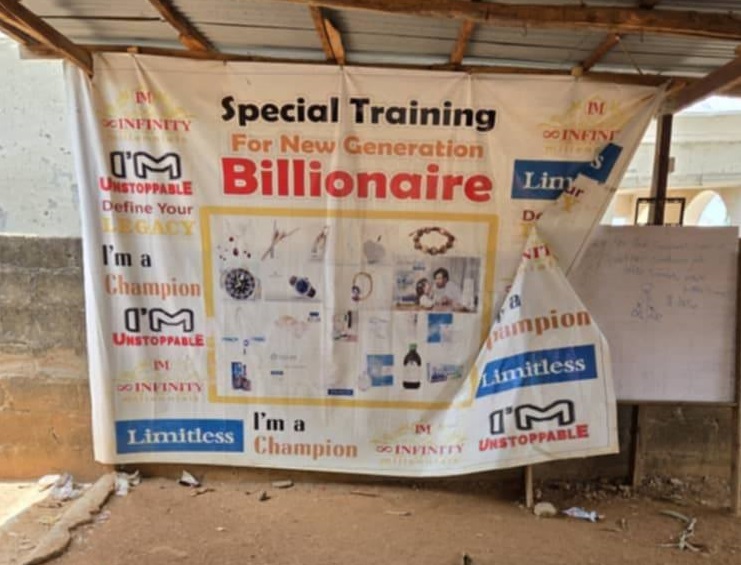
By Modupe Gbadeyanka
Three persons believed to be behind the Q-Net scam in Nigeria have been apprehended by the Economic and Financial Crimes Commission (EFCC).
The suspects, who allegedly operated the scheme under the name Mighty Infinity Millionaire Limited, were arrested by officials of the agency on Wednesday, May 1, 2025, in Abuja.
They are Olaniyan Joshua, Oyetunde Julius Akano, and Victor Oluwale, and are currently undergoing interrogation.
A statement from the EFCC said the accused persons falsely claimed to be representatives of Q-net, a global e-commerce and direct selling company.
While Q-net has since denied any link with the suspects and their activities, investigations further revealed they were equally running a fraudulent university training in pavilions and under trees, offering fake Bachelor of Science degrees in Medicine, Nursing, Cybersecurity, Computer Studies, and Geology, among others with a false claim of affiliation with Quest International University, Malaysia.
Student victims were charged between N1.2 million and N1.3 million as registration fees from which the suspected scammers raked in hundreds of millions in proceeds of crime.
Earlier on March 24, 2025, the commission raided Q-net University at Compensation Layout, Gwagwalada, FCT, Abuja, and arrested 133 suspects.
General
Facebook May Leave Nigeria Over $220m FCCPC Fine, Others

By Modupe Gbadeyanka
Nigerians may lose access to the social media platforms operated by Meta, a report by the BBC has said.
If this happens, it will not be the first time social media users in the country have experienced such blackout.
Recall that in 2021, the Nigerian government banned Twitter after the platform removed a post by the immediate past president of the country, Mr Muhammadu Buhari, for violating its rules.
The embargo was lifted in January 2022 after seven months.
Last week, Nigeria’s Competition and Consumer Protection Tribunal on Friday ordered WhatsApp and Meta Platforms Incorporated to pay a $220 million penalty and $35,000 to the Federal Competition and Consumer Protection Commission (FCCPC) within 60 days over data discrimination practices in Nigeria.
The tribunal’s three-member panel, led by Mr Thomas Okosun, in a verdict last Friday, dismissed the appeal by WhatsApp and Meta Platforms Incorporated regarding the $220 million penalty imposed by the FCCPC for alleged discriminatory practices in Nigeria.
In a report, the BBC said Meta argued that if it is forced to pay the fine, its users in Nigeria may lose access to Facebook and Instagram.
“The applicant may be forced to effectively shut down the Facebook and Instagram services in Nigeria in order to mitigate the risk of enforcement measures,” the company said in the court papers.
If this happens, it may greatly affect content creators, who rely on the platform for earnings.
Facebook remains one of the most popular social media platforms in the country like TikTok and Twitter, now known as X after Mr Elon Musk acquired it.
Meta is battling with different fines in Nigeria, including a $32.8 million sanction from the Nigerian Data Protection Commission (NDPC) alleged Meta over data privacy laws, and a $37.5 million fine for unapproved advertising.
General
Workers’ Day: NLC Decries Deteriorating Standard of Living of Nigerian Workers
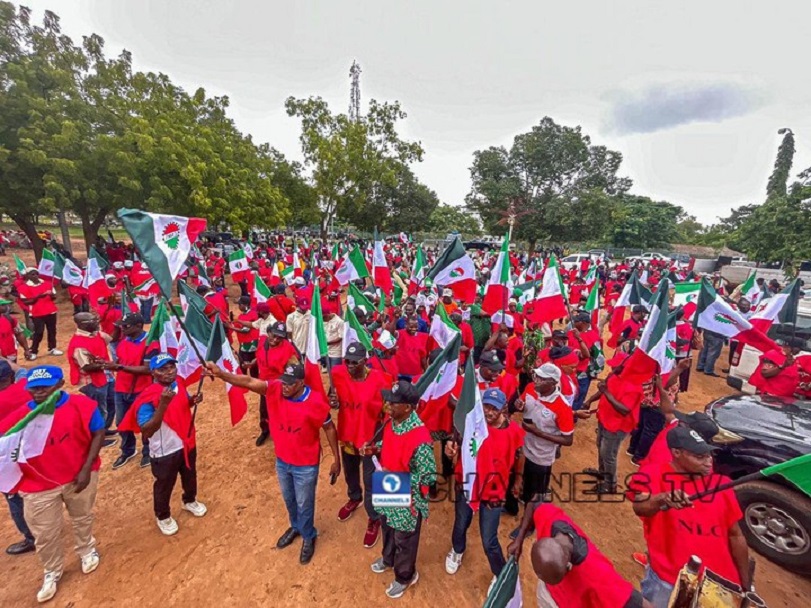
By Adedapo Adesanya
The Nigeria Labour Congress (NLC) has outlined demands to the federal government while expressing deep concerns over the deteriorating economic conditions of workers as the world marks the International Workers’ Day (May 1).
NLC President, Mr Joe Ajaero, said Nigerian workers are groaning because of poor pay as a result of the economic policies of President Bola Tinubu as well as growing insecurity and political interference in labour affairs across the country.
Mr Ajaero described the current state of the Nigerian economy as hostile to workers, noting that the removal of fuel subsidy, Naira devaluation and rising inflation have plunged millions of households into deeper poverty.
He maintained that the current economic trajectory has eroded the value of wages, rendering workers helpless and unable to meet basic needs.
“It is clear that the policies of the government, particularly the ill-timed and unstructured removal of fuel subsidies and the floating of the Naira, have pushed Nigerian workers and their families to the brink,” he said.
The NLC president reiterated the labour union’s position on the new minimum wage, stating that N70, 000 is the barest minimum that workers can accept under the current economic conditions. He argued that the amount, though still insufficient considering the skyrocketing cost of living, could serve as a starting point for negotiation.
He lamented the increasing hunger facing workers in the country, “We are hungry,” he said, adding that, “The minimum wage cannot buy a bag of rice. If you are sincere and you go to work every day, 20 days, your salary is gone on transportation.
“We are not asking for luxury. We are simply demanding a wage that allows a worker to live a dignified life, pay rent, feed their families, send their children to school, and transport themselves to work.”
He said that even this figure would need to be adjusted periodically to keep pace with inflation and market forces.
“If the government can effectively implement some of the measures they have put in place -such as the N70, 000 minimum wage, the CNG transport system, and the students’ loan- then one can say that the renewed hope idea is working. I think the foundation has been laid, but we need the real implementation of these,” he stated.
On energy and transport, he criticised the government’s failure to deliver on the promised palliatives to cushion the effect of subsidy removal. He cited the delay in rolling out Compressed Natural Gas (CNG) infrastructure and vehicles, which was supposed to provide affordable alternatives to petrol-powered transportation.
“They promised us CNG buses. Where are they? They promised wage awards. Many states have not implemented anything. The promises made last year have remained largely on paper,” he said.
He called on the Federal Government to accelerate the implementation of energy reforms, especially in the transportation sector, to alleviate the burden on workers who spend a significant portion of their income on transportation.
Mr Ajaero also raised concerns over the inconsistencies in salary payments and implementation of wage awards across various states and federal agencies.
He noted that many state governments have either failed to implement the approved wage increases or are paying workers below the agreed minimum wage, thereby violating labour agreements.
He pointed out that the disparities in the federal and state public service salary structures were unacceptable and called for immediate harmonisation, including a review of salary step progression and grade levels to ensure equity.
The NLC president further urged the government to reform the country’s tax regime, which he said unfairly targets the poor while allowing multinational corporations and political elite to evade taxes.
“It is only in Nigeria that someone earning N50, 000 a month is taxed heavily while the real billionaires are not paying their fair share. This system must change,” he said.
Additionally, the labour leader condemned the growing state of insecurity in many parts of the country, which he said not only affects productivity but, also, endangers the lives of workers, especially those in rural communities and high-risk professions.
He also criticised the decay in the health and education sectors, lamenting that many workers can no longer afford basic healthcare or quality education for their children. Turning to internal challenges within the labour movement, he decried the increasing political interference in union activities, particularly in Rivers and Edo states.
He accused state governors of undermining the autonomy of the trade unions, suppressing workers’ voices, and in some cases, promoting parallel union leadership to create division.
“In Rivers State, we are witnessing a complete breakdown of labour-government relations. Retirees are not being paid, union meetings are disrupted, and workers’ rights are trampled upon. In Edo, we are dealing with a crisis of leadership instigated by the state government,” he alleged.
He urged the federal government to call erring state governors to order and protect the rights of workers as enshrined in the Constitution to prevent the escalation of events in those states. He further stated the status of no May Day celebrations in the states still stands. He challenged the government to prioritise social services in its spending plans and cut waste in governance.
-

 Feature/OPED5 years ago
Feature/OPED5 years agoDavos was Different this year
-
Travel/Tourism9 years ago
Lagos Seals Western Lodge Hotel In Ikorodu
-

 Showbiz2 years ago
Showbiz2 years agoEstranged Lover Releases Videos of Empress Njamah Bathing
-

 Banking7 years ago
Banking7 years agoSort Codes of GTBank Branches in Nigeria
-

 Economy2 years ago
Economy2 years agoSubsidy Removal: CNG at N130 Per Litre Cheaper Than Petrol—IPMAN
-

 Banking2 years ago
Banking2 years agoFirst Bank Announces Planned Downtime
-

 Sports2 years ago
Sports2 years agoHighest Paid Nigerian Footballer – How Much Do Nigerian Footballers Earn
-

 Technology4 years ago
Technology4 years agoHow To Link Your MTN, Airtel, Glo, 9mobile Lines to NIN




